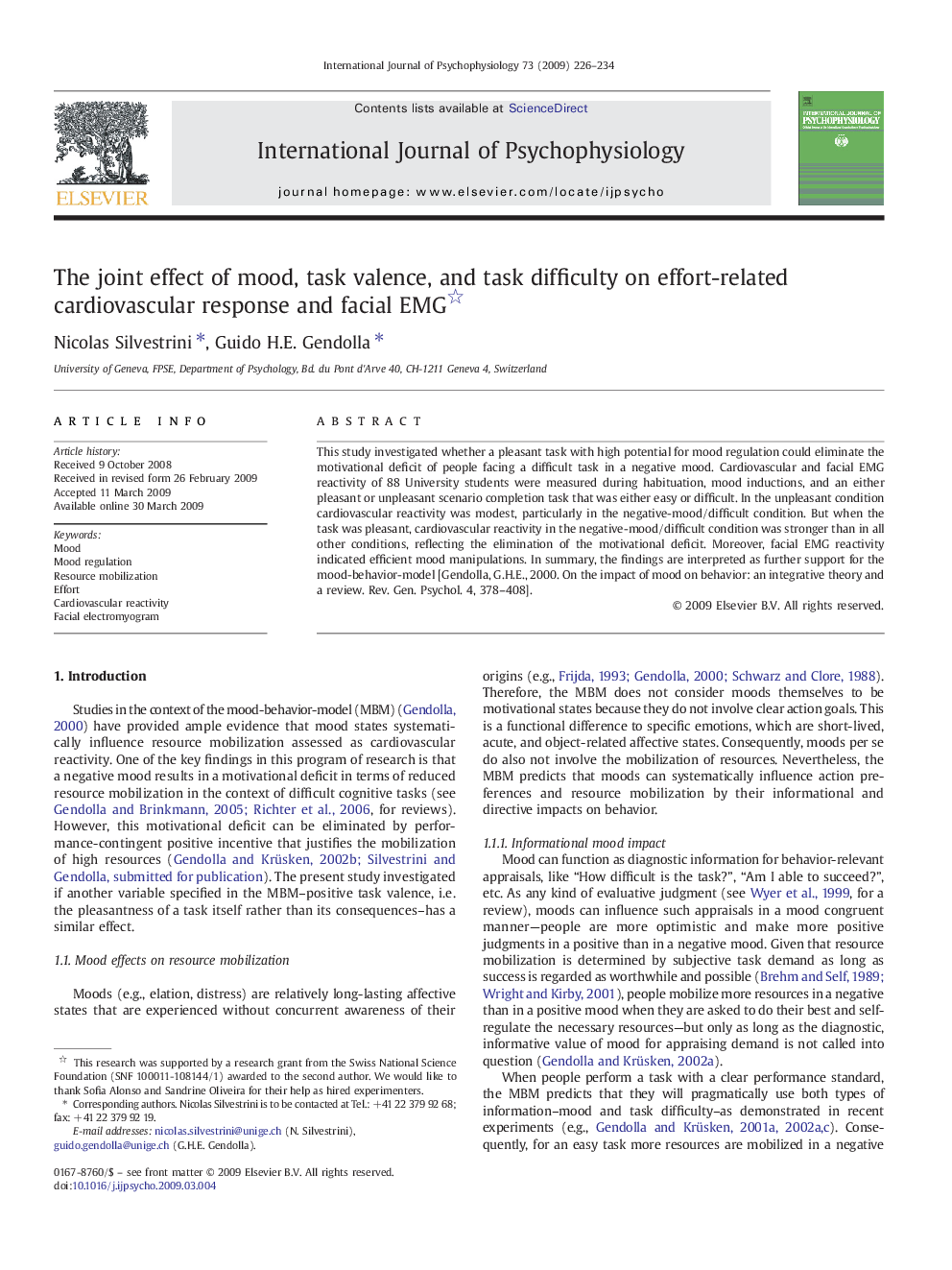| Article ID | Journal | Published Year | Pages | File Type |
|---|---|---|---|---|
| 7296388 | International Journal of Psychophysiology | 2009 | 9 Pages |
Abstract
This study investigated whether a pleasant task with high potential for mood regulation could eliminate the motivational deficit of people facing a difficult task in a negative mood. Cardiovascular and facial EMG reactivity of 88 University students were measured during habituation, mood inductions, and an either pleasant or unpleasant scenario completion task that was either easy or difficult. In the unpleasant condition cardiovascular reactivity was modest, particularly in the negative-mood/difficult condition. But when the task was pleasant, cardiovascular reactivity in the negative-mood/difficult condition was stronger than in all other conditions, reflecting the elimination of the motivational deficit. Moreover, facial EMG reactivity indicated efficient mood manipulations. In summary, the findings are interpreted as further support for the mood-behavior-model [Gendolla, G.H.E., 2000. On the impact of mood on behavior: an integrative theory and a review. Rev. Gen. Psychol. 4, 378-408].
Related Topics
Life Sciences
Neuroscience
Behavioral Neuroscience
Authors
Nicolas Silvestrini, Guido H.E. Gendolla,
